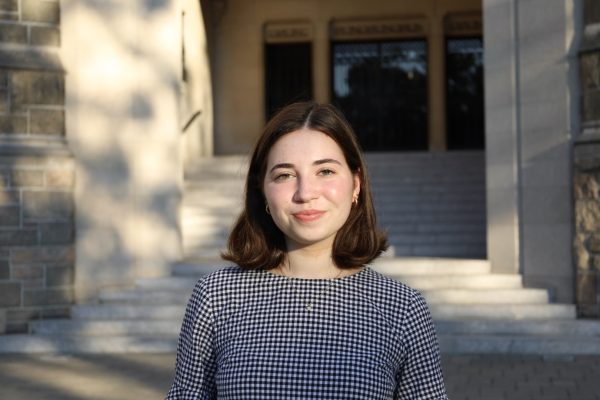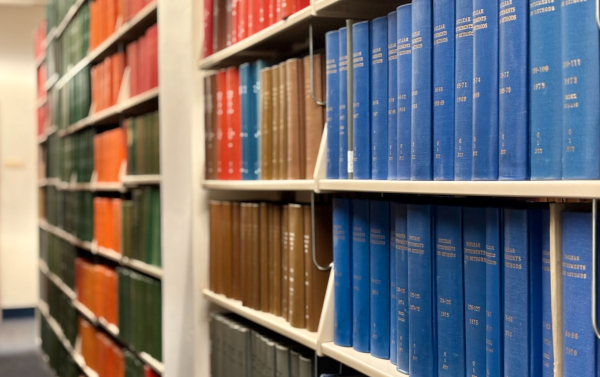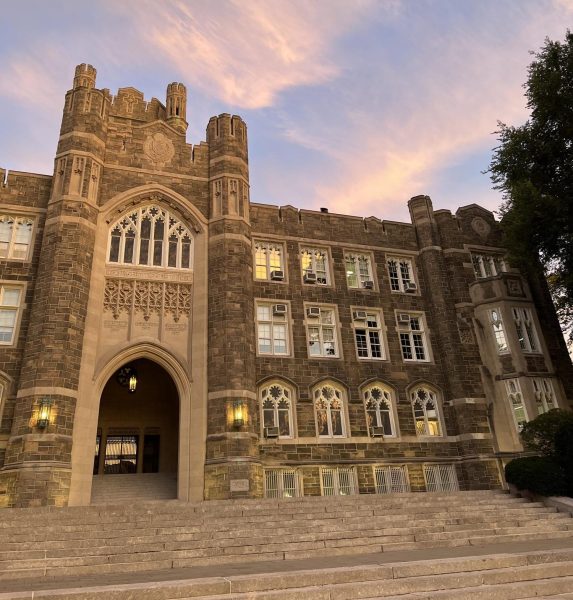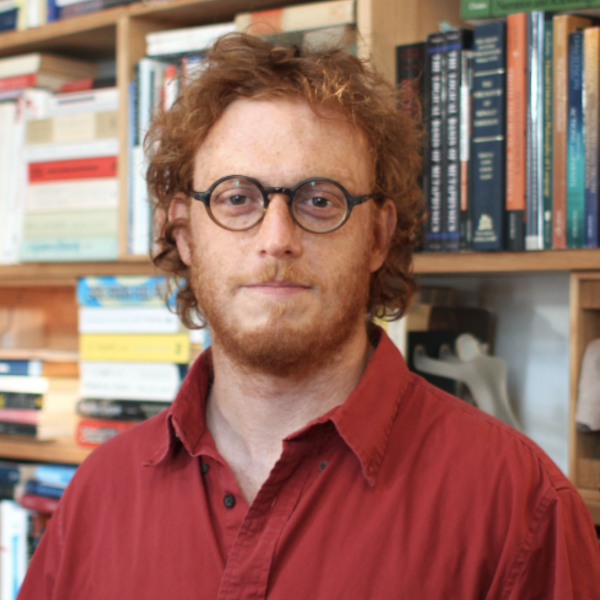Artificial Intelligence Invades Academia
Released late last year, ChatGPT is an AI-powered chatbot that generates responses based on a prompt in mere seconds. Although ChatGPT is relatively new, users have begun using the chatbot for a variety of purposes such as having the chatbot generate poems, draft emails and even write essays. However, ChatGPT has raised concerns among academics who fear that students will try to pass off ChatGPT’s work as their own.
Steve D’Agustino, director of Online Learning, and Anne Fernald, professor of English and Women, Gender and Sexuality Studies, recorded a podcast episode titled “I Still Believe in Learning” where they discussed ChatGPT and its implications for teaching and learning.
D’Agustino said he is hesitant to label ChatGPT as a problem. According to D’Agustino, since the technology is so new, it’s uncertain whether ChatGPT will become an issue in the classroom. “I think it’s helpful to think of it just as another kind of tool… We don’t really know how to use ChatGPT as an instructional tool. But we do have information about how we can respond to rising technology,” he said.
D’Agustino also compared ChatGPT to laptop-use in the classroom; professors should think about ChatGPT in the same way as laptops and smartphones. Just as professors had different responses to laptops in the classroom, they will also have different responses to ChatGPT.
“There’s a number of ways to get through a course without learning anything and still receiving a good grade. It’s not like there were never these kinds of short cuts available before,” said D’Agustino.
Edward Tian, a senior at Princeton University, built an app to detect whether text is written by ChatGPT. However, the app, GPTZero, often incorrectly identifies text as being written by ChatGPT. If a professor used GPTZero to try and bust a student for using ChatGPT, they would risk falsely accusing students of cheating. Due to GPTZero’s inaccuracy, educators cannot yet rely on the app to catch students’ use of ChatGPT.
Fernald recognized that there’s nothing professors can do to prevent students from cheating, however, students at Fordham are here to learn: “99.9% of Fordham students don’t cheat. They do their work and they want to learn in their classes,” she said.
Rather than regarding ChatGPT as a negative complication for learning, D’Agustino and Fernald examined different ways in which ChatGPT can be used as a learning tool in the classroom.
According to D’Agustino, Fordham’s faculty has been discussing the possibility of integrating ChatGPT in the classroom. For example, professors can give ChatGPT an assignment and then have students critique what ChatGPT produces. This way, students will still exercise their disciplinary expertise.
“Even if students are using it to do their homework, they’re still evaluating their answer. They’re going to read through it, think about it, tweak it, etc. It’ll be helpful to integrate this peer editing process into the instructional process… We put this idea of cheating at the forefront and it does a disservice to this share of commitment,” said D’Agustino.
Fernald has explored the creative uses of ChatGPT by instructing it to write in the style of specific authors such as Virginia Woolf or Shakespeare. “As I’m learning more about it, I’m thinking about way more ways to use it as a tool rather than a cheating machine,” said Fernald.
Both D’Agustino and Fernald don’t see ChatGPT disincentivizing students from doing their work. However, ChatGPT may have some effect on how teachers think about more authentic assessments of their students’ learning such as asking students more personal questions on exams or having students share their process while writing a paper.
“I think students have to make choices about where they want to get information from and how they’re going to engage with the information that’s given to them,” said D’Agustino.
Although ChatGPT is capable of writing an academic paper, it could eliminate the learning experience or creative process that many students experience while completing an assignment. D’Agustino suggested that a collaborative approach between students and professors may be the best way to explore ChatGPT as it continues to develop.
“Teachers are pretty adaptable… because in some ways students in online learning environments [during COVID-19] helped us understand the use of technology and methods of engagement that helped students during the pandemic,” said D’Agustino.

Sofia Donohue is a senior from Kensington, Md., who is majoring in English with a double minor in history and Italian. She first joined the Ram as a digital...














































































































































































































